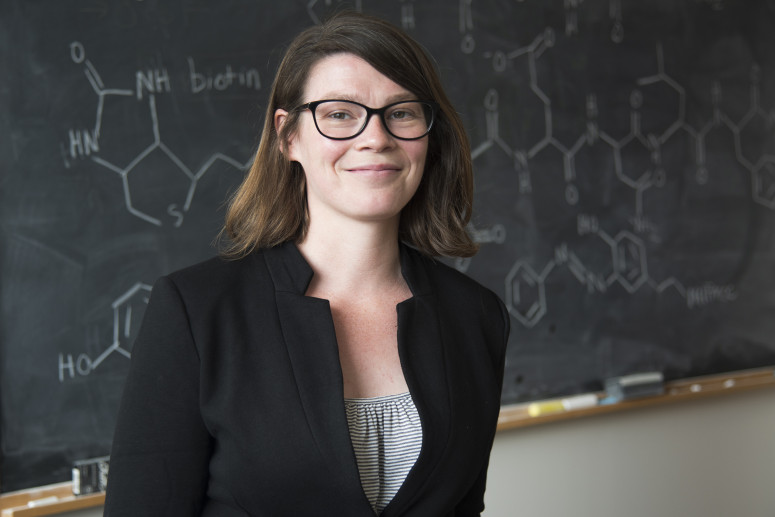20 Feb New toolkit helps scientists study natural cell death

Amy Weeks led research to build a more efficient and affordable biochemical toolkit for studying cell death. Photo by Robin Davies
New research from the Weeks Lab in the Department of Biochemistry opens the door for scientists to explore cell death, a critical biochemical process, with greater ease. Here’s the rundown on professor Amy Weeks and her lab’s recent research and paper:
- Cell death is a healthy and constant part of life. Disruptions to the cell death process can result in illness, such as cancerous tumors.
- Available research tools to study the processes and pathways involved in cell death have been expensive and complicated to use.
- Researchers have developed a new toolkit to help scientists study the nuances of cell death using less expensive, off-the-shelf chemicals.
What background info do you need to know?
When deciduous trees drop their leaves each year as the temperatures cool, it is not a sign of organismal death but rather an indication of a healthy tree, full of life. So, too, the orderly and intentional death of cells, or apoptosis, is a sign of good human health.
Cells undergo apoptosis for many different reasons, including eliminating extra immune cells that remain after fighting off an infection or stopping uncontrolled cell division in its tracks.



